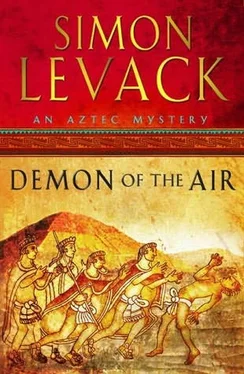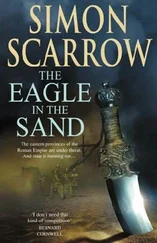Simon Levack - The Demon of the Air
Здесь есть возможность читать онлайн «Simon Levack - The Demon of the Air» весь текст электронной книги совершенно бесплатно (целиком полную версию без сокращений). В некоторых случаях можно слушать аудио, скачать через торрент в формате fb2 и присутствует краткое содержание. Год выпуска: 2012, Издательство: St. Martin, Жанр: Исторический детектив, на английском языке. Описание произведения, (предисловие) а так же отзывы посетителей доступны на портале библиотеки ЛибКат.
- Название:The Demon of the Air
- Автор:
- Издательство:St. Martin
- Жанр:
- Год:2012
- ISBN:нет данных
- Рейтинг книги:4 / 5. Голосов: 1
-
Избранное:Добавить в избранное
- Отзывы:
-
Ваша оценка:
- 80
- 1
- 2
- 3
- 4
- 5
The Demon of the Air: краткое содержание, описание и аннотация
Предлагаем к чтению аннотацию, описание, краткое содержание или предисловие (зависит от того, что написал сам автор книги «The Demon of the Air»). Если вы не нашли необходимую информацию о книге — напишите в комментариях, мы постараемся отыскать её.
The Demon of the Air — читать онлайн бесплатно полную книгу (весь текст) целиком
Ниже представлен текст книги, разбитый по страницам. Система сохранения места последней прочитанной страницы, позволяет с удобством читать онлайн бесплатно книгу «The Demon of the Air», без необходимости каждый раз заново искать на чём Вы остановились. Поставьте закладку, и сможете в любой момент перейти на страницу, на которой закончили чтение.
Интервал:
Закладка:
We took Handy’s sons, Snake and Buck, with us. “No scholars, either of them,” confided their father, “but then neither am I, and they’d cause more trouble if I left them at home.”
I was aghast at the thought of taking the boys, but their protests against being left behind effectively drowned out my own. “They’ll be all right,” Handy said when I remonstrated with him. “It’s not as if anything’s likely to happen to us. I feel quite bad about taking your money for this, really.” He was in a good mood, apparently looking forward to his day out. I felt an urge to tell him the real purpose of the trip but I suppressed it. After all, I told myself, he was probably right, and nothing was likely to happen. I did not want him turning back and leaving me to go to Coyoacan on my own.
To change the subject, I asked him about the letter he had delivered for my master.
“No idea what it said. I told you, I can’t read.”
“Where did you take it?”
“Back to Pochtlan-the house of that merchant, Shining Light.” He hesitated at my sharply indrawn breath. “I suppose it was a reply to the letter I brought him.”
“Who did you give it to?”
“A household slave-miserable old bastard. I asked him what the letter was about, just out of curiosity, but he said his eyes were too far gone to read anything.”
The boys did not make a promising start, slouching sulkily behind their father and quarreling over whose turn it was to carry the bag with our lunch in it. They were just too young for the House of Youth, and no doubt that is where they would rather have been, hero-worshipping their older brothers, learning how to handle a spear or a sword and hanging on every exaggerated word of some scarred veteran’s exploits. They plainly did not think taking a long walk with their father and an unkempt slave was a good use of their time.
There was not much traffic on the road. A few individuals saunteredor ran, according to their business. We passed a caravan on the last stage of its long journey from the South, weighed down with exotic goods, the bearers sweating under tumplines that chafed their shoulders and bit into their foreheads. Trotting briskly in the other direction, so that we had to move smartly out of their way when they caught us up, was a squadron of warriors. They were mostly unblooded youths, judging by their plain cloaks and the loose locks of hair at the backs of their heads, although their captain was a veteran, a Shorn One. They were off to war or to threaten war: they had heavy packs slung over their backs on top of which their gaudy feathered shields and wooden swords bounced awkwardly. The obsidian blades set into the swords’ shafts glinted in the sunlight. The big floppy straps on the Shorn One’s sandals clapped noisily on the road.
“Grand sight, eh?” Handy broke our silence as he and his sons stood gazing after the warriors. The boys’ mouths were agape. “They’ll keep the tribute houses filled up. Wish I was young enough to go with them. Handy with a spear, I was. Still am. You should have seen-”
“I know,” I interrupted him too sharply. “I’ve seen enough warriors’ handiwork, believe me.” I watched the little cloud of dust the squadron had kicked up spreading and settling back on the road. I had been like them once, dreaming of a Flowery Death in battle or on the sacrificial stone. Then, like all young priests, I had gone to war and seen what it was really like: the trussed captive wriggling helplessly at my feet, the wounded man holding his severed arm and grinning at it in disbelief, the eagle warrior lying dead in the mud, his gorgeous plumage blackened and matted with blood. Above all I remembered the confusion, the captains shouting themselves hoarse and nobody listening, the bewildering sense that life’s rhythm had been suspended and Tezcatlipoca alone knew who had won and whether it mattered.
War, I thought, was for young men who had no time for the future and old men who had forgotten the past. The rest of us just had to grow up.
2
According to the old slave, Costly, Crocodile’s village lay just outside Coyoacan. Skirting the town itself, we found ourselves walking up a gentle slope, between narrow fields edged with tough, fleshy, broad-leaved maguey plants. The maguey had been planted in rows running across the hillside and their robust leaves and strong roots shored up the earth above them to form shallow terraces. Scattered among the fields were thatched huts made of mud bricks.
“Not much happening,” Handy said to me.
I glanced warily up toward the crest of the slope and down toward the town and the lake. “I can’t see anyone at all,” I said. “Should it be busy at this time of year?”
“It’s always busy,” the big commoner assured me. “You should try some honest toil in the fields! Look over there-there are some winter squashes they haven’t got in yet. They’ll lose them if they don’t get a move on.”
The fat vegetables lay, apparently neglected, among their tangled foliage. Just beyond them was a low, dark mound that I took to be earth until I saw a dark plume lifting from its surface in the breeze, and recognized the blackened and pulverized remains of mud bricks embedded in its surface.
Despite the Sun’s warmth on my back I felt a sudden chill.
“What happened here?” I asked slowly.
The big commoner’s brow creased in an expression of concern as he looked at the heap of ash. “It probably belonged to whoever was growing those squashes. I expect someone kicked over a hearthstone and the Old, Old God took offense and burned the place down.”
I laughed nervously. “I hope it wasn’t Crocodile’s.”
“Me too, after coming all this way. We’d better have a lookaround. Maybe we can find someone to tell us where this sorcerer lives.” He raised his voice to call his sons to order, but they took no notice. They were busy bickering and pushing each other about.
“I’ve carried this bag for long enough,” Buck snapped at his brother. “Now it’s your turn. Go on, pick it up!”
Snake replied by aiming a sly kick at his brother’s leg and then, very prudently, running away. I could not help smiling as I watched him go. He was the younger and, I suspected, the smarter of the pair, and he had my sympathy for that. I had been a little bit like him once.
“I don’t know what I’m going to do with those boys,” Handy grumbled. “The sooner at least one of them gets some manners beaten into him by a Master of Youths, the better.”
“Leave them to it,” I said. “Let’s find our man and get it over with.”
“All right. You two!” he called. “We’re going up the hill. Mind you look after that bag or we’ll all go hungry!”
I kept looking over my shoulder as we climbed the slope toward the nearest house, as if I expected to see someone following us, but apart from the two boys chasing each other between the rows of maguey plants there was nobody in sight.
The house was a shabby affair of crumbling mud bricks and moldy thatch, with a soiled cloth screen in the doorway that flapped listlessly in the breeze because no one had bothered to secure it at the bottom. The back and sides were surrounded by trash: shattered plates, maize husks, chipped obsidian knife blades, gnawed bones, a broken turkey pen. At the front squatted an old woman, her face tanned by a lifetime in the fields to a leather mask that gave nothing away as she watched us walking up the hill.
“Crocodile? Never heard of him.”
Handy looked at me. I looked away, in case the sense of foreboding I felt showed on my face.
“You must have,” the commoner said. “He’s a sorcerer. He lives here.”
“There are no sorcerers here,” the old woman snapped. “Never have been. You got the wrong village. Go away.”
Читать дальшеИнтервал:
Закладка:
Похожие книги на «The Demon of the Air»
Представляем Вашему вниманию похожие книги на «The Demon of the Air» списком для выбора. Мы отобрали схожую по названию и смыслу литературу в надежде предоставить читателям больше вариантов отыскать новые, интересные, ещё непрочитанные произведения.
Обсуждение, отзывы о книге «The Demon of the Air» и просто собственные мнения читателей. Оставьте ваши комментарии, напишите, что Вы думаете о произведении, его смысле или главных героях. Укажите что конкретно понравилось, а что нет, и почему Вы так считаете.












